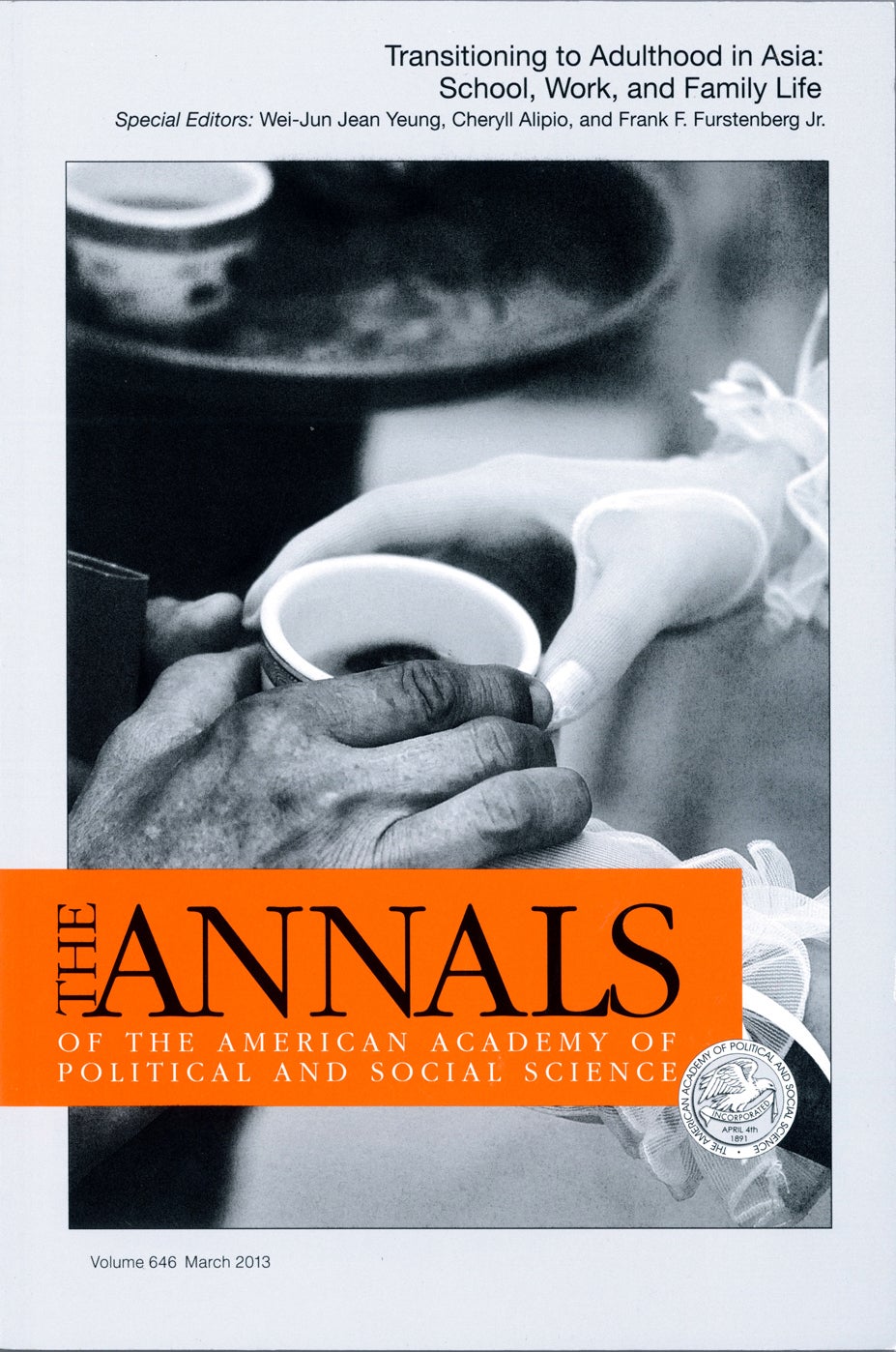Journals

The Annals of the American Academy of Political and Social Science – Transitioning to Adulthood in Asia: School, Work and Family Life (Vol. 646 No. 1)
| Author | : | YEUNG Wei-jun Jean, ALIPIO Cheryll & FURSTENBERG Frank F. (guest eds) |
| Publication Date | : | Mar / 2013 |
| Publisher | : | SAGE Publications, USA |
In the past decade or so, scholars in the United States have identified the emergence of a new, distinct stage of life, as adolescence has become protracted, and most young people of recent generations take longer to achieve economic and psychological autonomy than they did a half century ago (Booth, Crouter, and Shanahan 1999; Arnett 2000; Settersten, Furstenberg, and Rumbaut 2005; Berlin, Furstenberg, and Waters 2010; Furstenberg 2010; Settersten and Ray 2010). This new life stage, in between adolescence and adulthood when young people are in a semiautonomous state, has come to be known as “early adulthood.” Main characteristics of this new life stage include a later entry into the work force, a longer period of time living in the natal home, and a delayed age at marriage and childbearing. These trends not only have profound implications for young adults’ well-being and intergenerational relationships but also challenge social institutions, such as family, schools, labor markets, and many youth-serving institutions.
From ARI co-organized workshop “Transitioning to Adulthood in Asia: Marriage, Fertility and Labour Force Participation”, 7-8 July 2011.

